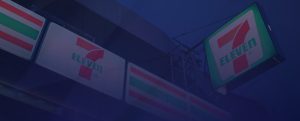Driving Forward
The Growth and Opportunities in the Evolving Car Wash Market
The car wash industry has experienced remarkable growth and transformation in recent years, driven by changing consumer preferences, technological advancements, and increasing environmental concerns. The car wash market has become a lucrative sector in the dynamic CRE landscape, attracting investors and entrepreneurs nationwide. The demand for car wash services is anticipated to increase as the number of cars on the road increases, consumers experience rising disposable income, and automobile owners use professional car washing facilities more frequently.
Car Wash Market Performance
According to CoStar Group data and B+E research, the triple-net lease (NNN) car wash real estate market expanded in 2022, with over 245 leased properties changing hands for a total market value of more than $1 billion. The average sale price of a NNN car wash was $4,480,273, with deals trading at an average cap rate of 5.79 percent.
The car wash market continues to attract significant interest. In fact, several NNN car wash transactions were finalized in the final weeks of 2022, and the market continues to witness a steady influx of new supply.
B+E reported as of January 31, 2023, the total count of NNN car wash properties listed stood just below 90. These properties showcased an average lease term of 18.4 years, an average asking price of $5,198,165, and an average asking cap rate of 5.77 percent.
The car wash market is projected to reach $68.9 billion by 2031, expanding globally at a CAGR of 6.7 percent between 2023 and 2031. In 2021 the market was valued at $29.3 billion, and in 2022, $38.4 billion. In the U.S., the car wash services market is expected to reach $27.89 billion by 2033, a CAGR of 5.5 percent between 2023 and 2033.
Market Dynamics
- By region, North America contributed more than 51% of the revenue share in 2022.
- By type, the roll-over/in-bay segment generated more than 51% of revenue share in 2022.
- By mode of payment, the cashless payment segment is projected to record the biggest CAGR of 4.8% from 2023 to 2032.
Overall, the industry is expected to keep expanding. In-bay or roll-over services have the largest market share and thus generate a majority of revenue for the sector. Additionally, since roll-over car washes only use 10 to 50 gallons per car, they have a lower operating cost than other washes. Roll-over car washes also have the capacity to be integrated into smaller spaces, with auto dealerships integrating them onsite.
Supply and Demand for 2023
In 2023, a crucial question arises in the NNN car wash market: Will buyers be able to absorb the existing and upcoming supply of properties throughout the year?
Buyers now have a wider range of NNN options available to them. January 2023 indicated that the substantial inventory is unlikely to diminish anytime soon. However, NNN car washes possess a distinct position within the broader real estate landscape, which positions them to perform exceptionally well despite market fluctuations.
With increasingly stringent environmental regulations prohibiting residential car washing methods, the customer base for professional car wash services is projected to grow.
The United States Census Bureau stated that over the past decade, 70 percent of car owners in 2020 opted for car wash facilities instead of washing their cars at home. This indicates a significant shift in consumer behavior towards professional car wash services. Furthermore, estimates report that approximately eight million vehicles utilize some form of car wash service every day.
Key Factors Influencing the Market
According to Data Bridge Market Research, the industry is enacting several technological advancements that are revolutionizing on-demand vehicle wash services, such as advanced water recycling systems, hybrid and touch-free washing technology, and other economical innovations. These advancements aim to reduce manual vehicle preparation time and minimize friction, resulting in cleaner and drier vehicles in a shorter period.
The demands of busy schedules and fast-paced lifestyles have prompted customers to prefer professional car washing services over personal car washing methods. The convenience and time-saving aspect of automated car washing has become the norm, contributing to the market’s growth.
As the market shifts due to rising interest rates and inflation, service-based businesses that offer nonnecessity services, like car washes, will need to find innovative ways to keep customers returning and increase their property values. With this in mind, most car wash facilities have moved into a more self-serve business model with drive-thru menus to help customers select their service without speaking to an employee. Automation has proven to be an excellent way for car washes to improve overall profitability while staying competitive and meeting the market’s and customers’ evolving needs.
Drivers
- Increase in the number of on-road passenger and commercial vehicles
- Rise in preference toward commercial car wash solutions
- Growth in the adoption of digital, door-to-door, and robotic car wash solutions
Opportunities
- A surge in demand for professional vehicle wash services across the globe
Restraints
- Strict rules and regulations regarding water usage and wastewater management
A Few of the Prominent Players in the U.S. Car Wash Services market Currently, Include:
- Zips Car Wash
- International Car Wash Group
- Quick Quack Car Wash
- True Blue Car Wash
- Autobell Car Wash
- Wash Depot Holdings INC.
- Super Star Car Wash
- Mister Car Wash
These players have adopted various strategies to increase their market penetration and strengthen their position in the industry. They are expanding their reach using acquisition to gain a foothold in the market, fostering industry expansion. By offering addon services coupled with the rapid rise in the number of vehicles, they expect significant growth potential.
Why Invest in Car Washes
The triple net lease car wash market continues to mature and expand. In 2022, more than 245 properties exchanged hands for a gross market value of more than $1 billion, according to CoStar Group. The average sale price of a NNN car was $4,480,273, and deals traded at an average cap rate of 5.79%. The key question in 2023 is whether buyers will absorb the current and future supply of properties as rising interest rates put a damper on market conditions. Approximately 3.1 million square feet of car wash space are under construction across the U.S., according to CoStar Group. Car Washes occupy a unique space in the broader real estate universe, which positions them to outperform even in a shifting market.
Traditionally dominated by local operators, express car washes are seeing more private equity investment, fueling growth and consolidation in the industry. With firms pivoting their interest in car wash companies that own express washes, also known as conveyer or tunnel washes, car washes are expected to become more appealing as credit quality improves. Further, new business models offering memberships or subscriptions have created a predictable, steady revenue stream. Since the carwash market remains highly fragmented, it is a key draw for many investors. The industry’s makeup, as well as its subscription-based sales systems, is keeping the market in investors’ spotlight.
Given how highly automated express car washes have become, it’s very difficult to stand out in such a competitive market. Operators now focus on differentiating factors such as finding the best locations, constructing eye-catching buildings, and offering unique car wash experiences.
Lastly, the Tax Cuts and Jobs Act of 2017 made car washes eligible for a more generous bonus depreciation deduction. Depreciation-motivated buyers are the most aggressive purchasers of NNN car washes. Despite the decrease from 100 percent to 80 percent deduction in 2022, buyers are still targeting car washes for tax purposes and capturing the deprecation.









